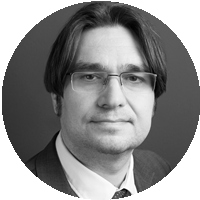dena publishes new practical guide for heat pumps
Berlin, Germany, 26 March 2024. There is enormous potential for achieving the goal of climate neutrality by 2045 if heat pumps are installed in apartment buildings. A new guide shows how this potential can be realised and presents solutions and practical examples. The guide was created as part of dena’s Gebäudeforum klimaneutral project in collaboration with Bundesverband Wärmepumpe e.V., GdW Bundesverband deutscher Wohnungs- und Immobilienunternehmen e.V. and the Fraunhofer Institute for Solar Energy Systems ISE. This cooperation is a measure from the German government’s concerted efforts in the heat pump sector.
‘The framework for the necessary investments in existing buildings is now in place with the German Heat Planning Act, the Buildings Energy Act and the Federal Funding for Efficient Buildings programme. Heat pumps will play a central role. This poses particular challenges when using them in apartment buildings in existing housing stock, and experience with them is still limited. Therefore, the exchange and networking of specialist players needs to be further intensified and expanded, such as in the area of operational monitoring and optimisation. We are showing the current state of knowledge and experience in practice and want to support experts with the bundled findings in implementation through the new guide,’ emphasises Christian Stolte, Head of Climate-neutral Buildings at dena.
‘The socially orientated housing companies are pursuing the implementation of climate targets in existing buildings at full speed, particularly through the use of heat pumps. The technical expertise is available, but affordability is a major challenge for landlords and tenants. Housing companies and their tenants urgently need better financial support in view of the enormous investments required,’ explains Axel Gedaschko, president of GdW Bundesverband deutscher Wohnungs- und Immobilienunternehmen e.V.
‘There are many arguments in favour of using heat pumps in existing buildings from a technical point of view,’ says Peter Engelmann, co-author and head of the Building Systems Technology group at Institute for Solar Energy Systems ISE. ‘Heat pumps can work very well with existing radiators, for example, and tapping into environmental heat sources is often possible without any problems.’
‘Manufacturers and installers are prepared for a sharp rise in demand for heat pumps for apartment buildings. The industry offers a broad portfolio of technical solutions ranging from centralised heat pumps in the boiler room to decentralised solutions for floor heating systems and local heating networks with large heat pumps,’ emphasises Dr Martin Sabel, Managing Director of Bundesverband Wärmepumpe (BWP) e.V., while also pointing to the new regulations of the German Buildings Energy Act, according to which new heating systems must use at least 65 per cent renewable energy from 2028 at the latest. ‘The heat pump directly fulfils the requirements of the Buildings Energy Act and also improves the efficiency class of the newly connected building.’
Proven heat pump solutions for the challenges of apartment buildings
In contrast to smaller residential buildings, heat pump projects in apartment buildings pose particular challenges, for example, the tight building density in city centres or the conversion of decentralised systems such as single-flat gas heating systems or individual heating stoves, as well as the high temperatures associated with central hot water heating. But there are also solutions for these conditions with innovative components such as photovoltaics for thermal heating, decentralised heat pumps and home stations. Grid-connected neighbourhood solutions are also an option. The guide shows that there are a variety of solutions with different heat sources from air, ground and water, even for buildings with low thermal insulation and with radiators. Lowering the heating temperatures is key when efficient operation and low operating costs are the goal. Peak load boilers can be used to support heat pumps. Improving the thermal insulation will enable the heat pump to be the sole source of supply in the future. The tenants were also satisfied with the changeover in the eight projects analysed for this guide. Early involvement and communication have proven to be key factors here.
About Gebäudeforum klimaneutral (Climate-neutral Building Forum)
Gebäudeforum klimaneutral is dena’s solution for a central, nationwide hub for climate-neutral building and renovation in buildings and neighbourhoods. It is aimed at professionals in this field. The platform provides quality-assured information and tools, builds knowledge in the topic area of innovation and uses good examples to increase the visibility of the energy transition in the building sector. The dena team of experts in Gebäudeforum klimaneutral is supported by a continuously growing network of specialist partners comprising industry associations and representatives from all regions of Germany. The aim of Gebäudeforum klimaneutral is to multiply knowledge and in turn accelerate the progress of the energy transition in the building sector.
-
 © HoffotografenSebastian Boie
© HoffotografenSebastian BoieSenior Expert, Communications T: +49 30 66 777 - 168 sebastian.boie(at)dena.de